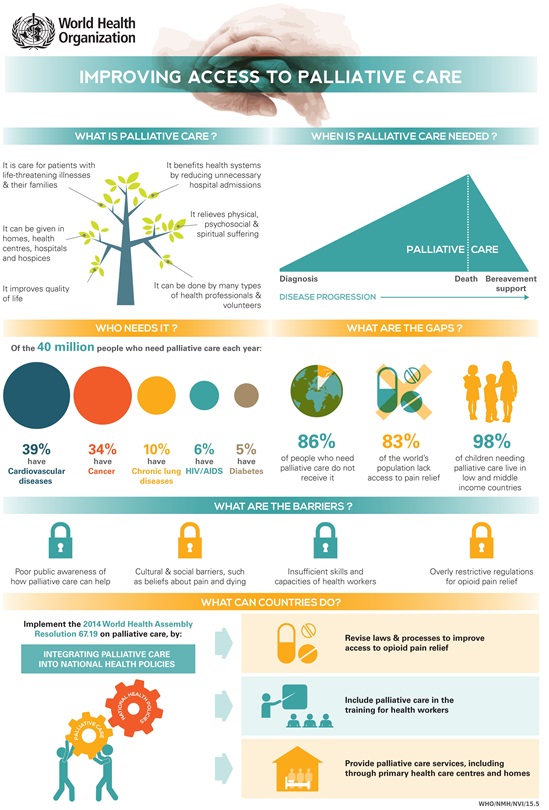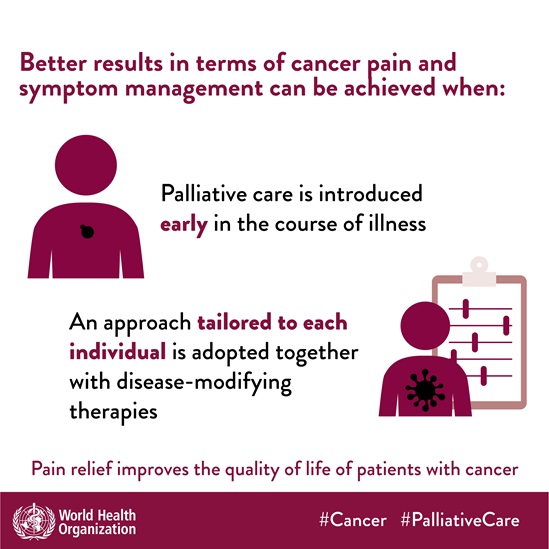Supporting countries to strengthen palliative care
Palliative care is an approach that improves the quality of life of patients – young and old – and their families who are facing the challenges associated with life-threatening illness. This is achieved through the prevention and relief of suffering, by means of early identification, assessment and treatment of pain and other physical, psychosocial and spiritual distress.
Each year, 40 million people are in need of palliative care. Only 14% of people needing palliative care at the end of life currently receive it. Palliative care is recognized in key global mandates and strategies on universal health coverage, noncommunicable diseases, and people-centred and integrated health services.
In 2014, the first ever global resolution on palliative care, World Health Assembly resolution WHA67.19, called upon WHO and Member States to improve access to palliative care as a core component of health systems, with an emphasis on primary health care and community/home-based care. WHO develops evidence-based guidelines and tools on palliative care, including pain management options in adults and children, how to integrate palliative care into national health systems, and guidance for the availability and accessibility of controlled medicines. Palliative care medicines, including those for pain relief, are included in WHO’s list of essential medicines for adults and children.
.tmb-479v.jpg?sfvrsn=a3f0f57a_1)





